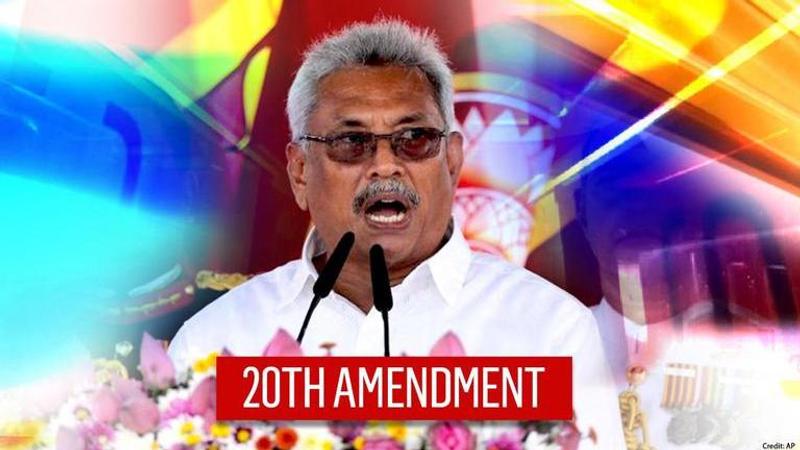Published 09:18 IST, October 24th 2020
Sri Lanka President gains more power as Parliament approves constitutional changes
Sri Lanka's Parliament has approved a constitutional amendment to reverse the previous government's reforms aimed at curbing authoritarianism.

Sri Lanka's Parliament has approved a constitutional amendment to reverse the previous government's reforms aimed at curbing authoritarianism. President Gotabaya Rajapaksa will now have more powers, due to the constitutional changes, which will allow him to strengthen his hold on Sri Lanka. The new constitutional change will allow the Rajapaksa to hold, appoint and dismiss ministers while appointing him as the authority of independent commissions like the election, public service, police, human rights, corruption investigations commissions and other such bodies. Sri Lanka's President will now have the power to dissolve the Parliament anytime after two years and six months after being elected.
20th Amendment gives power to Rajapaksa
The constitutional changes were passed on Thursday with a 91 vote majority after 156 lawmakers of the 225 members of the Parliament voted in favour of the 20th Amendment while 65 voted against it. These constitutional changes were passed after several changes were made under the direction of the Supreme Court as it observed that some clauses in the original proposal were against the sovereignty of the people and required a general vote by the electorate in order to become law. The Supreme Court ensured that the clauses, enabling the citizens to challenge the actions of a President in court, financial audit of a President's office and making him answerable to the Parliament, remained the same to maintain the sovereignty. In the original proposal, the President was given the power to dissolve the Parliament after a year of being elected which was changed to two years and six months as opposed to the previous rule which prohibited the President from dissolving the Parliament until the six months before the end of its term of five years.
Rajapaksa's Government
In the August elections, Rajapaksa and his party, the Sri Lanka Podujana Party (SLPP), won a two-third Parliamentary majority votes following which he appointed his brother and former President, Mahinda Rajapaksa as the Prime Minister as his other brother and three nephews hold Parliamentary seats.
Rajapaksa's control over the parliamentary allowed him to make constitutional changes. Claiming that the presidential powers limited him and hindered his work, President Rajapaksa said that the new change will be a priority for his government and allow him to rule properly. Sri Lanka's President Rajapaksa also introduced a clause that lifted the ban on people with dual citizens allowing them to hold political office. Last year, Rajapaksa renounced his US citizenship to run for President.
(With inputs from AP)
Updated 09:18 IST, October 24th 2020




